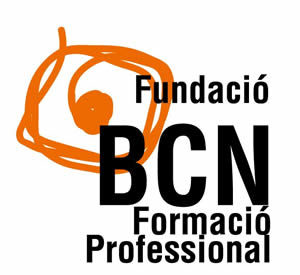The future of the agricultural professions is marked by cutting-edge technology and alternative methods of agri-food production The BCN Vocational Training Foundation has presented the twelfth publication of the collection “Emerging economic sectors and vocational training in the Barcelona Metropolitan Region” dedicated to the agri-food sector. The research was carried out in collaboration with Mercabarna and with the support of the AMB and Barcelona City Council. New agricultural models and the diversification of food production are the main strategies to ensure the viability of the business. Likewise, there is a need for the tertiarization of agri-food farms towards activities that transform and market the cultivated material. Barcelona, February 1, 2022 – This morning, Mercabarna’s headquarters hosted the presentation of the study «Agri-food sector» of the collection «Emerging economic sectors and vocational training in the Metropolitan Region of Barcelona», prepared by the BCN Vocational Training Foundation with the collaboration of Mercabarna and the support of the AMB and Barcelona City Council. The event was attended by: Jordi Valls, General Manager of Mercabarna; Montserrat Ballarín, vice-president of the Social and Economic Development Area of the AMB and president of Mercabarna; Àngel Tarriño, coordinator of the VET Observatory; and Javier Gracia, a technician at the VET Observatory. The event was also closed by Héctor Santcovsky, director of the social and economic development area of the AMB. The study emphasizes that in the current context of sustainability, the agri-food model must move towards more climate-friendly models, where technological innovations, shortening of cycles and trade channels of agri-food products and changes in the attitude of consumers are transforming the agri-food system thanks to the digitalization of the sector, sustainable agriculture and the expansion of marketing channels.
Similar professional profiles, but with new skills. Faced with this change in the way we produce, professionals in the sector must make an effort to incorporate new knowledge into daily practice through continuing education and, at the same time, the initial vocational training system must ensure so that the new farmers have already taken them on. In this line, Javier Gracia, from the Vocational Training Observatory of the BCN Vocational Training Foundation, explained that “similar to other sectors, the agri-food industry is immersed in a process of transformation that affects all its professional profiles by on skills related to digitization, technicalization, sustainability and business and business management strategies ” In order to adapt professionals to changes in the production and management system, it is necessary to promote the creation or readaptation of professional cycles to respond to the needs of the agri-food production environment (through specific modules with free hours, project work and FP Dual). However, it is necessary to work with the training offer to attend to professional profiles that are not covered and in high demand, such as specialization in arboriculture and professionals in sustainable food systems. Challenge of the food sector: the generational change and digital incorporation
The future of the agricultural professions is marked by cutting-edge technology and alternative methods of agri-food production The BCN Vocational Training Foundation has presented the twelfth publication of the collection “Emerging economic sectors and vocational training in the Barcelona Metropolitan Region” dedicated to the agri-food sector. The research was carried out in collaboration with Mercabarna and with the support of the AMB and Barcelona City Council. New agricultural models and the diversification of food production are the main strategies to ensure the viability of the business. Likewise, there is a need for the tertiarization of agri-food farms towards activities that transform and market the cultivated material.
Challenge of the food sector: generational change and digital incorporation
One of the most mentioned realities is the degree of aging of the producers, almost 65% are over 55 years old in the Metropolitan Region of Barcelona, and the lack of relief. The result is the progressive abandonment of the cultivated area, which has been attenuated by a certain return to the countryside as a result of the 2008 crisis, but which has not managed to change the trend.
The strategy inevitably goes to encourage the agri-food profession among young people and generate a new batch of professionals with adequate training to guarantee the success and viability of the farms, as pointed out by Ángel Tarriño, coordinator of the FP Observatory. Likewise, it is necessary to promote actions for the digital implantation and the technological vanguard to the current farms to achieve optimal levels of competitiveness with criteria of environmental sustainability.
As Hector Santcovsky has affirmed-highlighted the importance of the agri-food chain in the metropolitan region of Barcelona, which generates, as a whole, more than 100,000 jobs in addition to 10,000 companies”, and has highlighted the commitment to have a solid, comprehensive, sustainable, competitive, proximity and ecological metropolitan food system.
The president of the BCN Professional Training Foundation Sara Berbel has placed the agri-food sector as strategic to guarantee quality food in the city. Berbel has warned «that the food future necessarily passes to establish strategic lines to promote training and the agri-food sector to improve the efficiency of the food system in terms of sustainability and food guarantee.»
The general director of Mercabarna, Jordi Valls, states that «this study is very important to empower local farmers from their training, in the face of the challenges posed by sustainable food, which require knowledge, innovation and technology to face a sector that has become strategic «.





